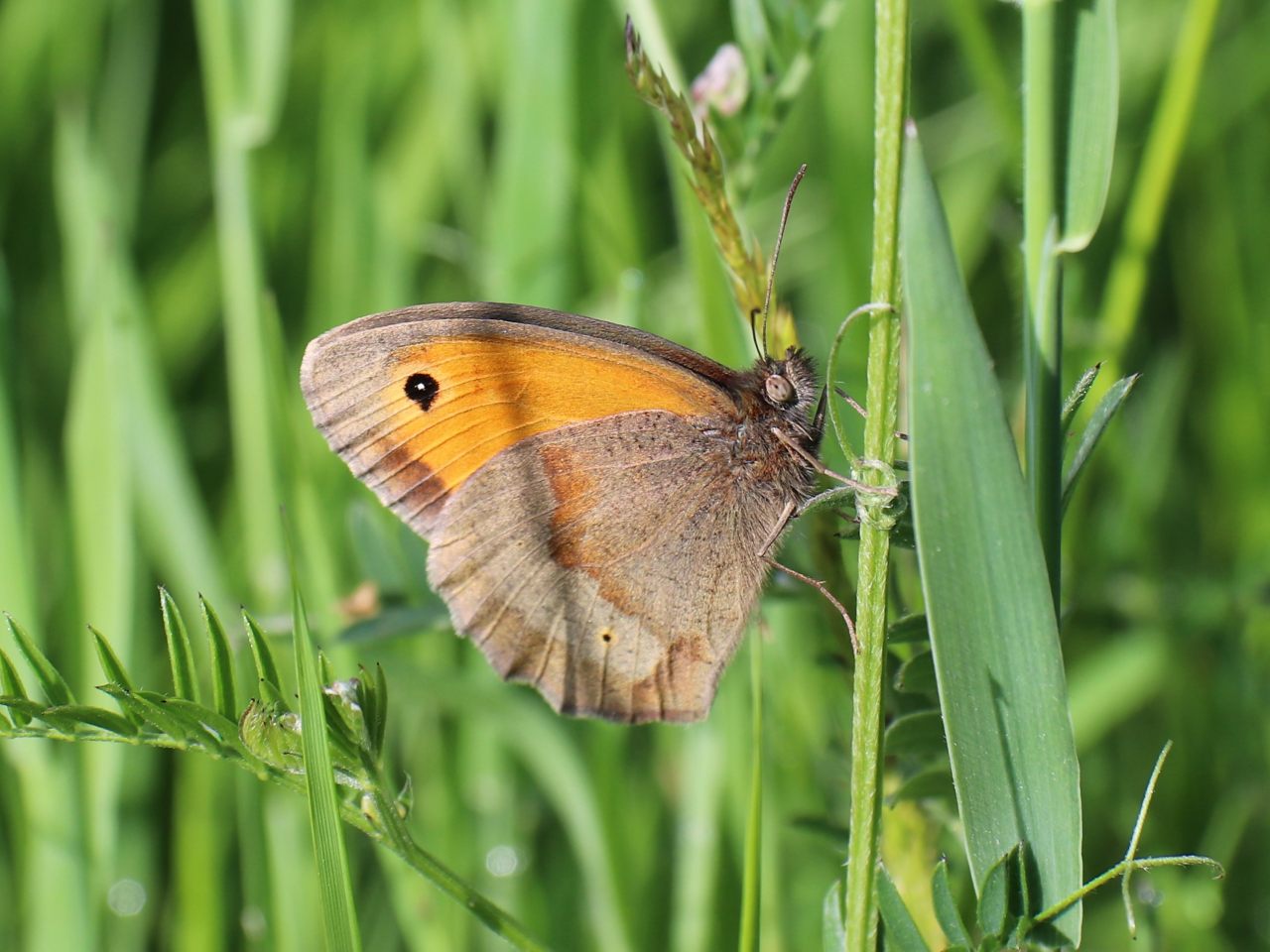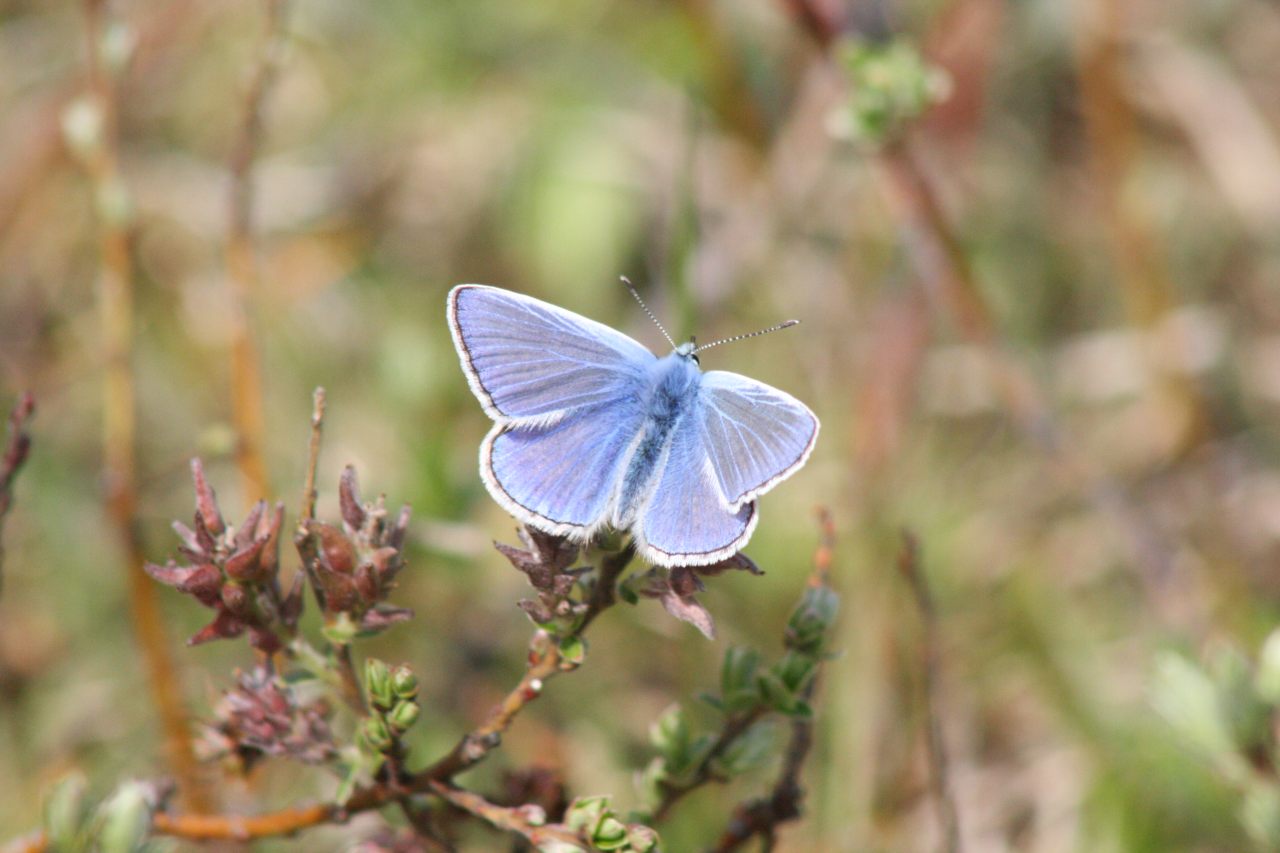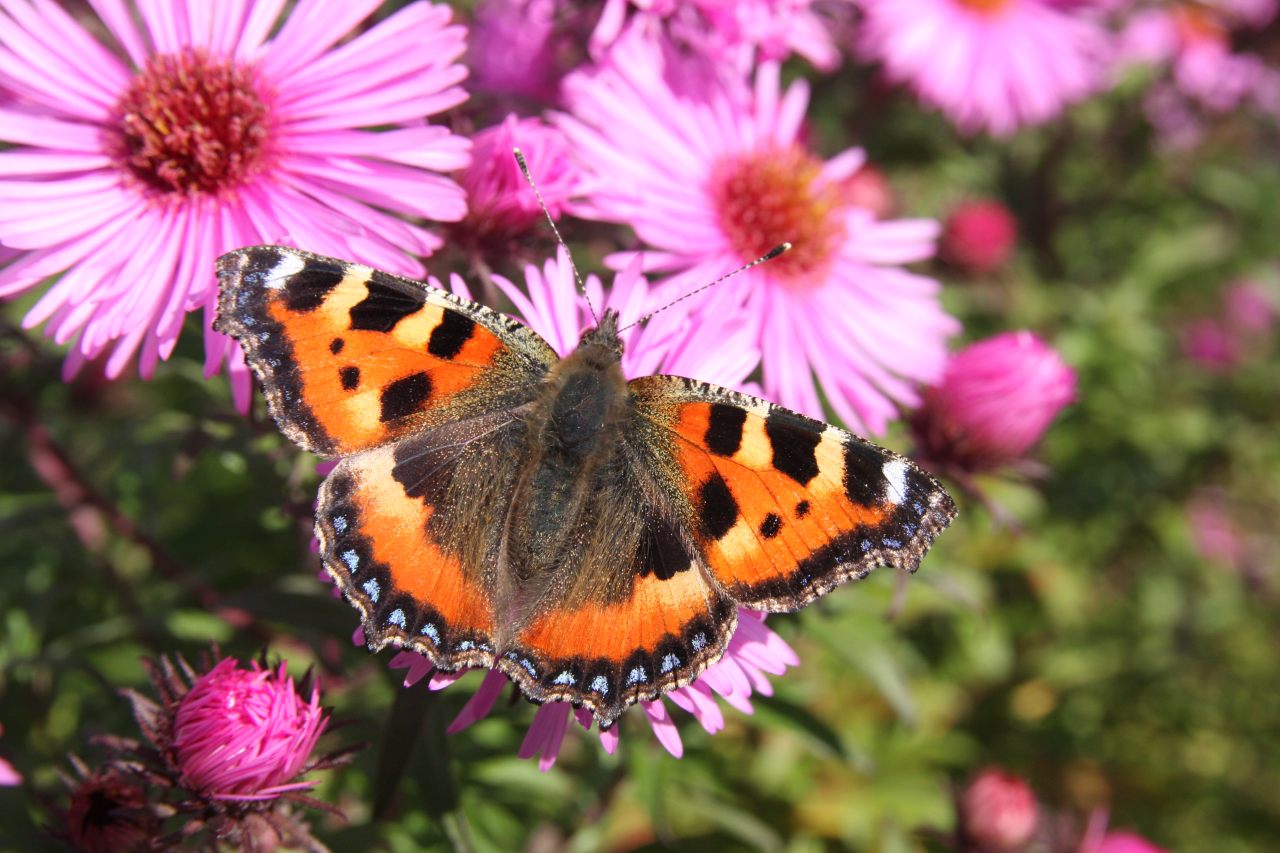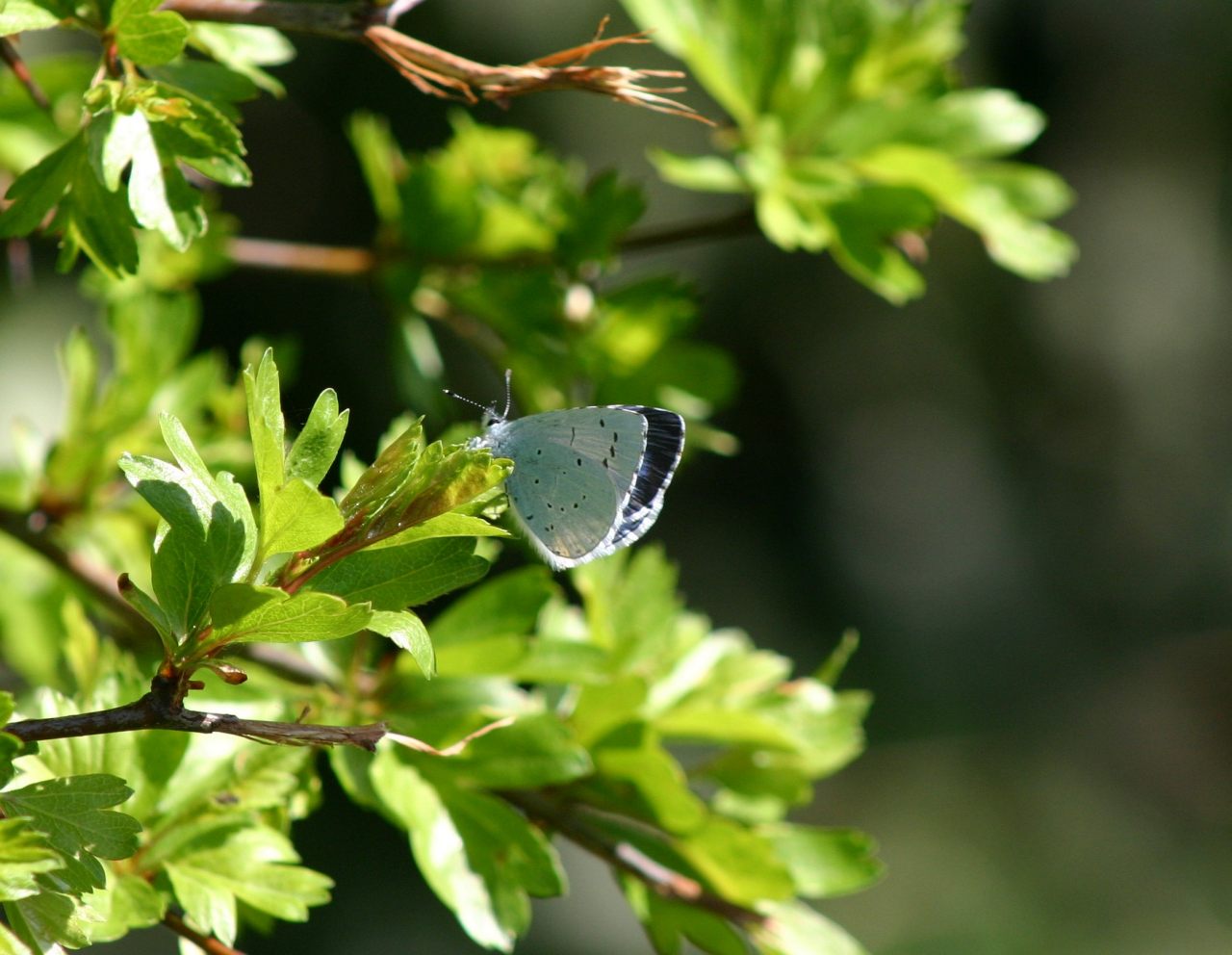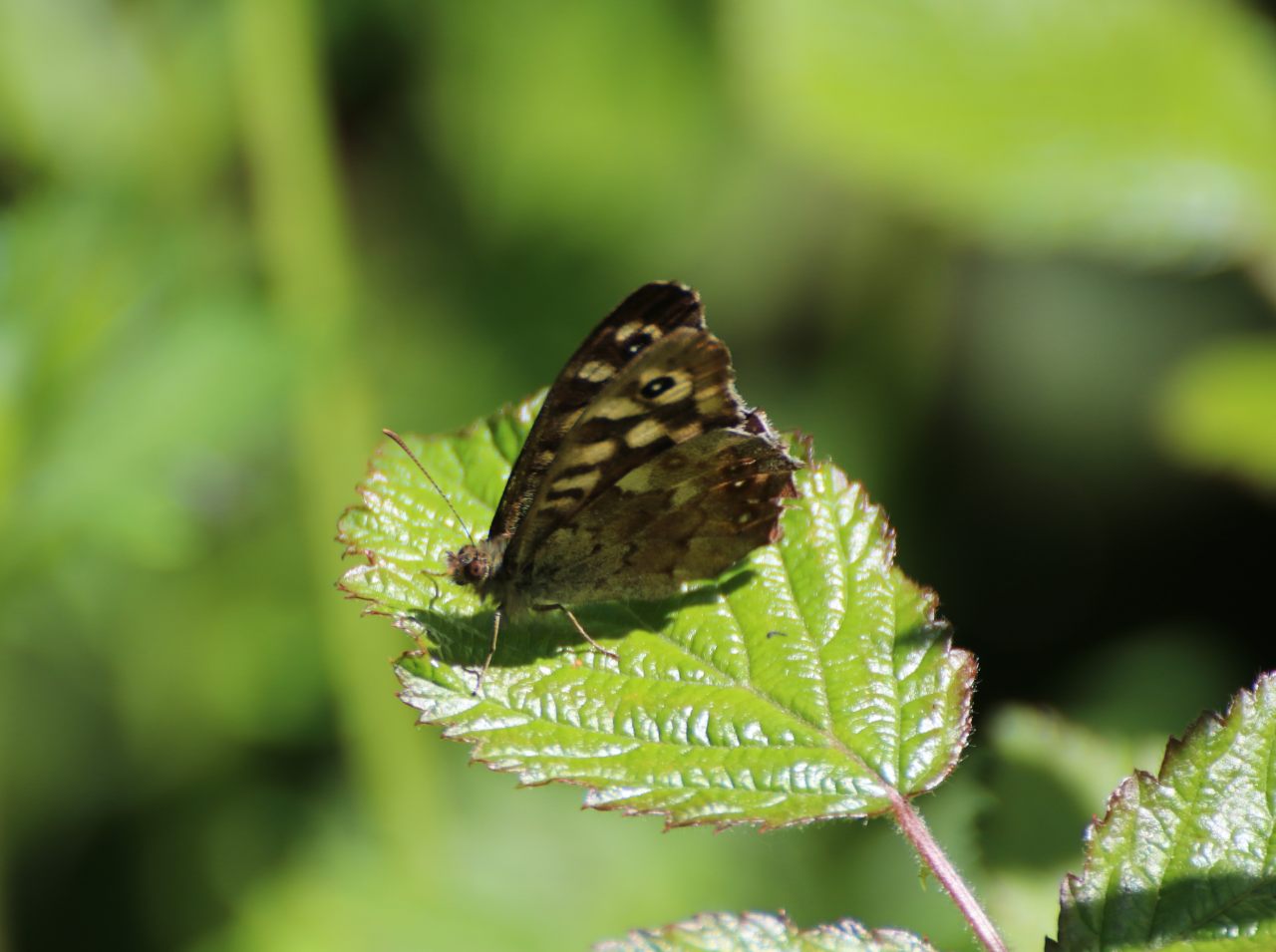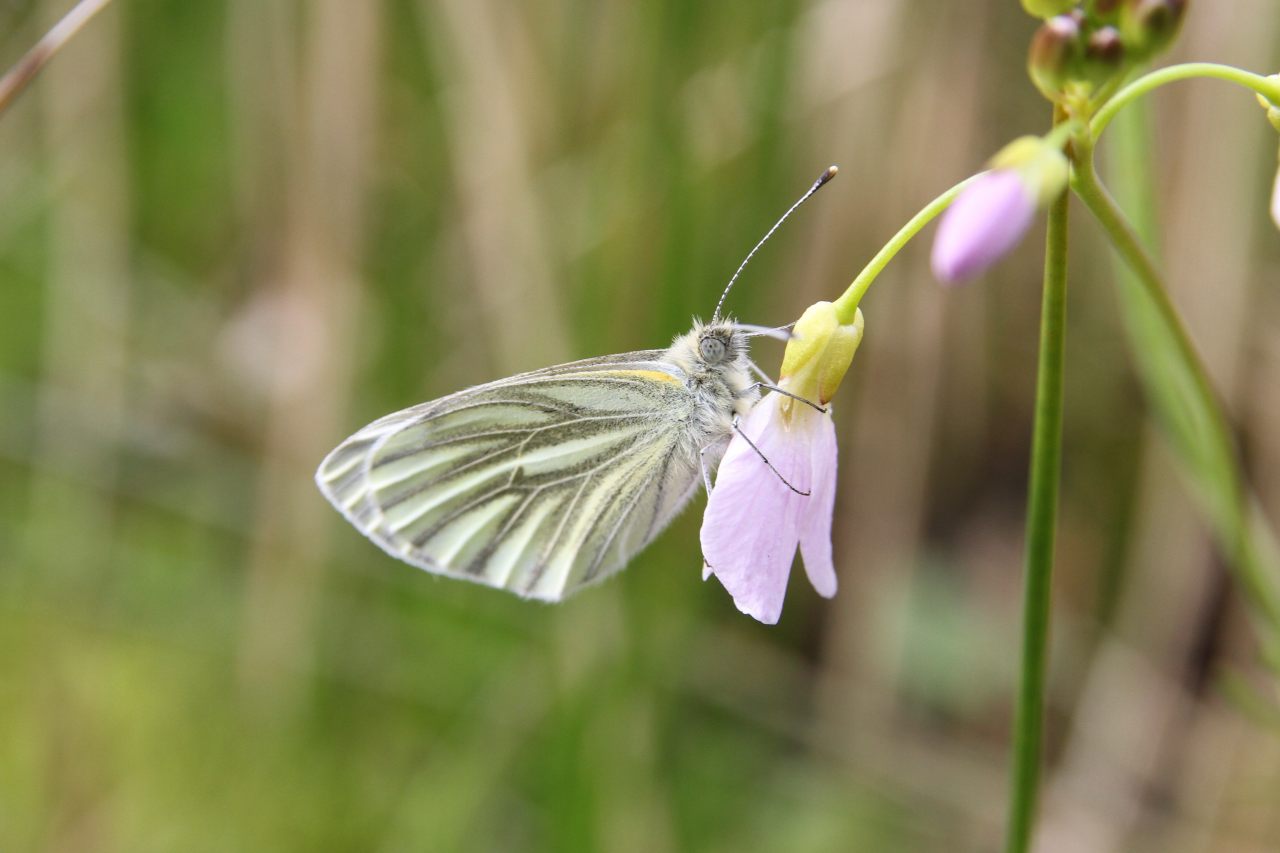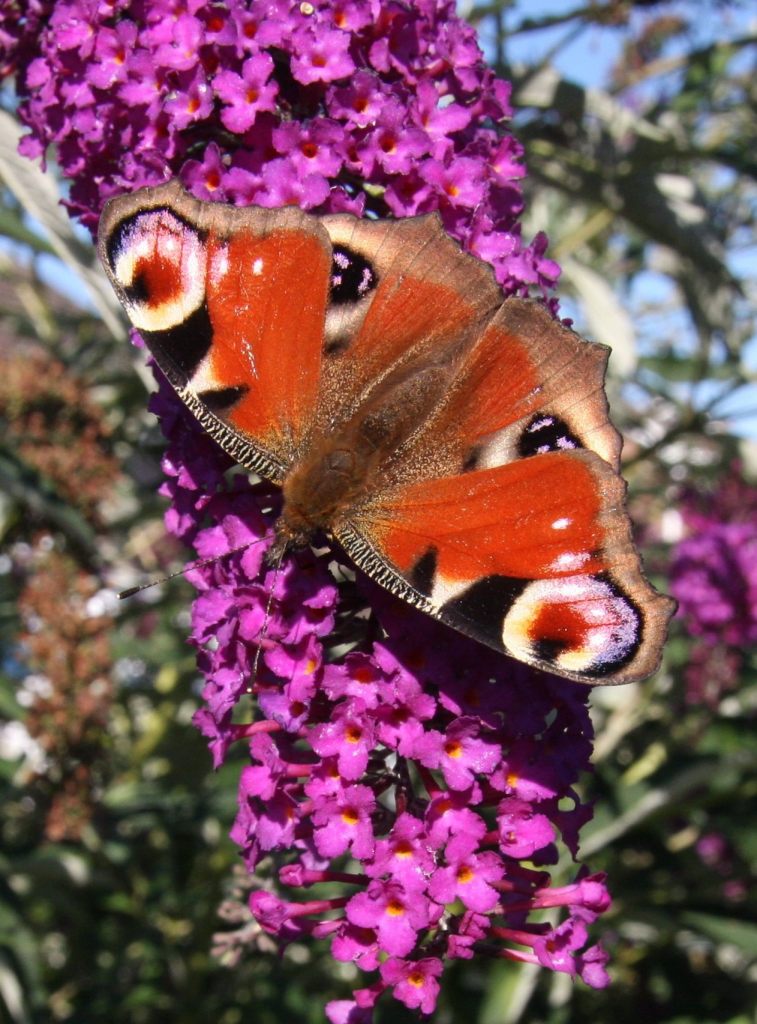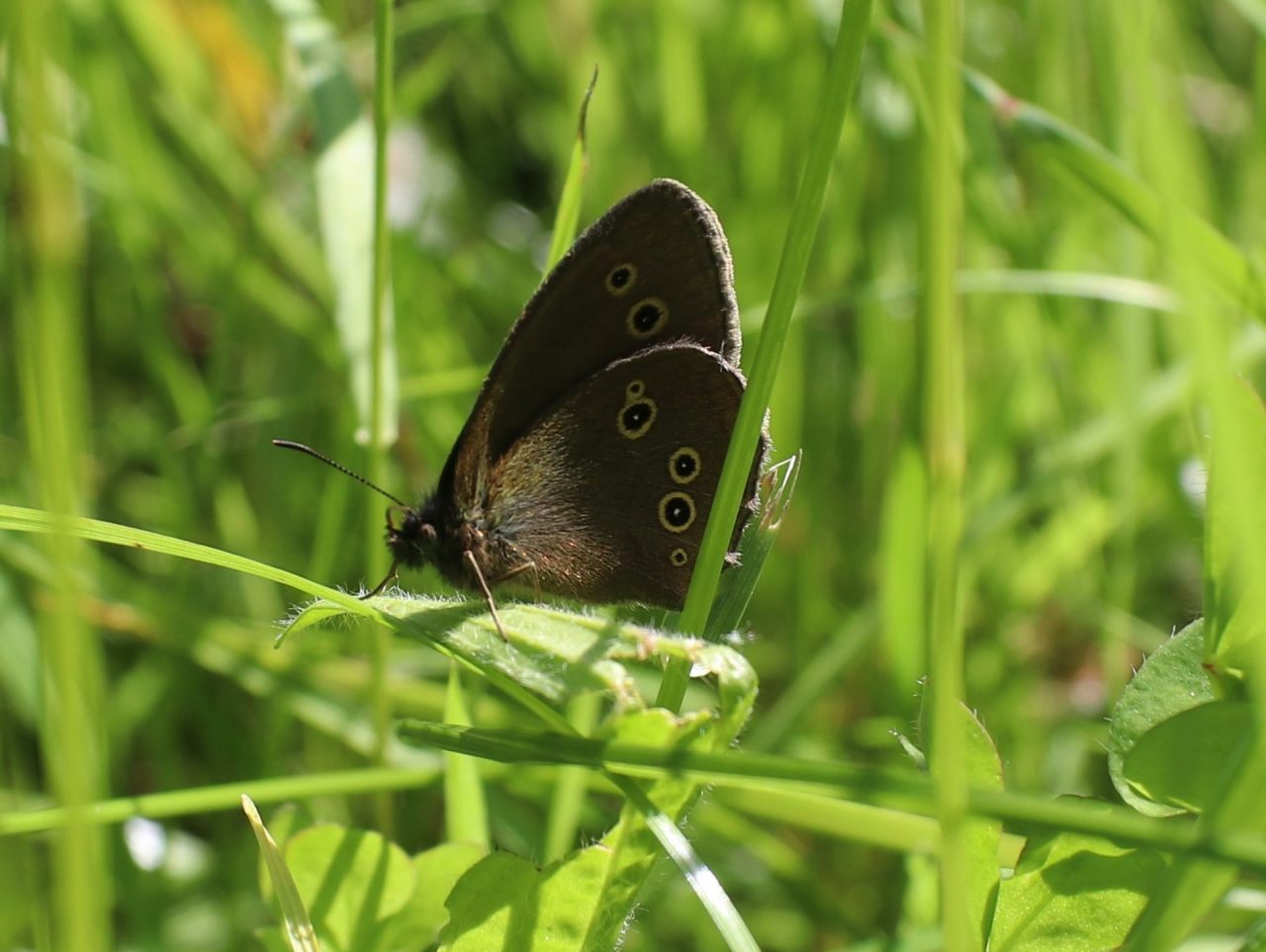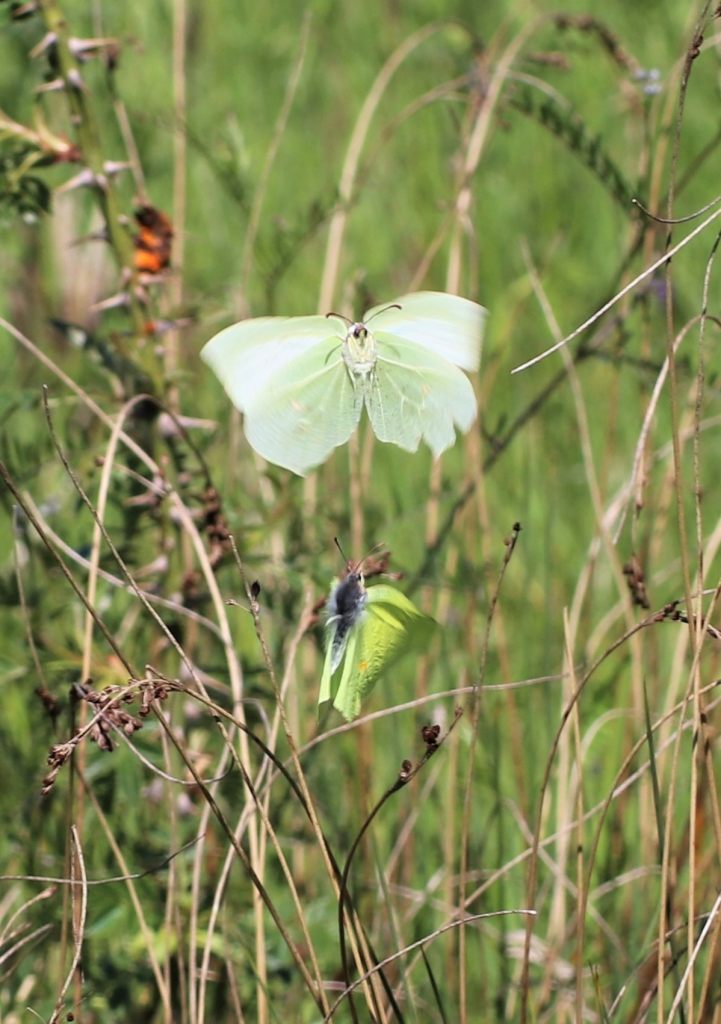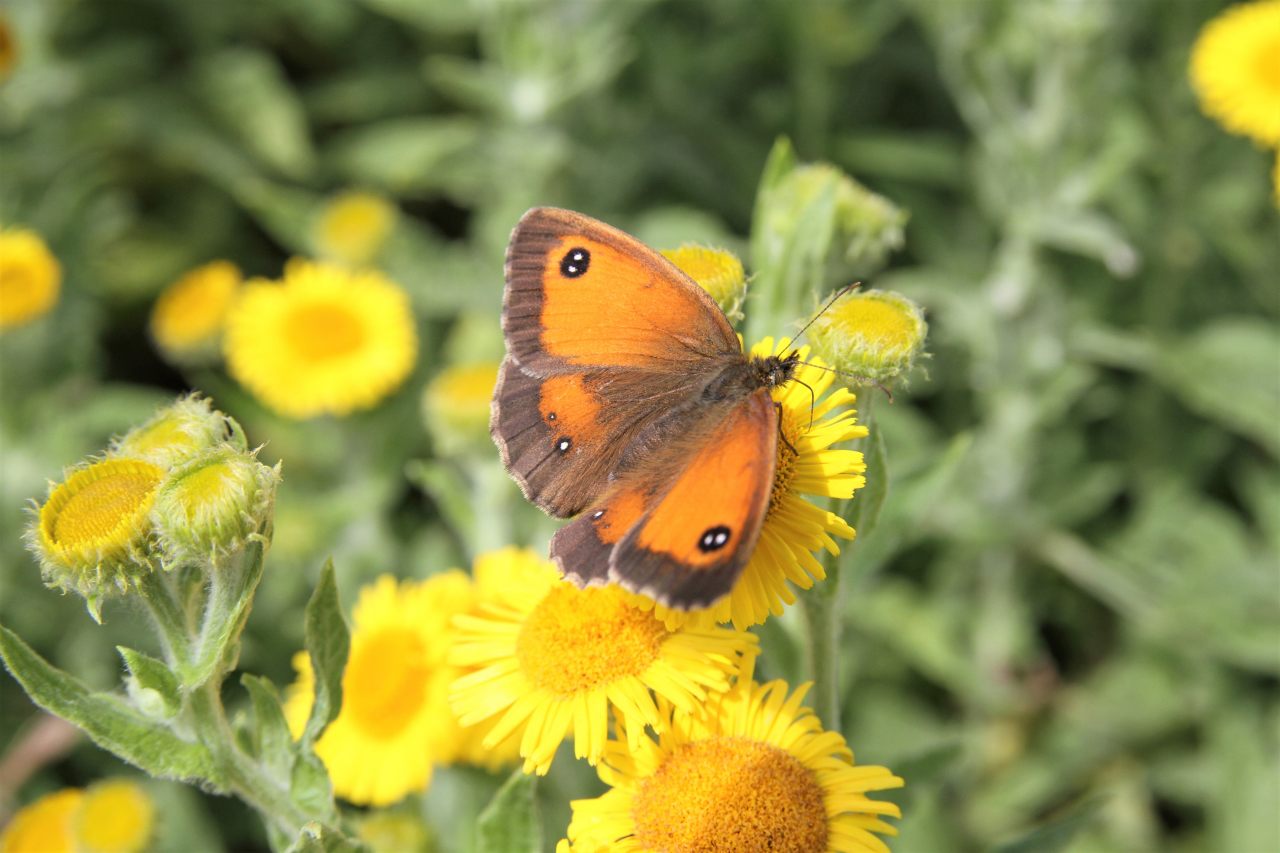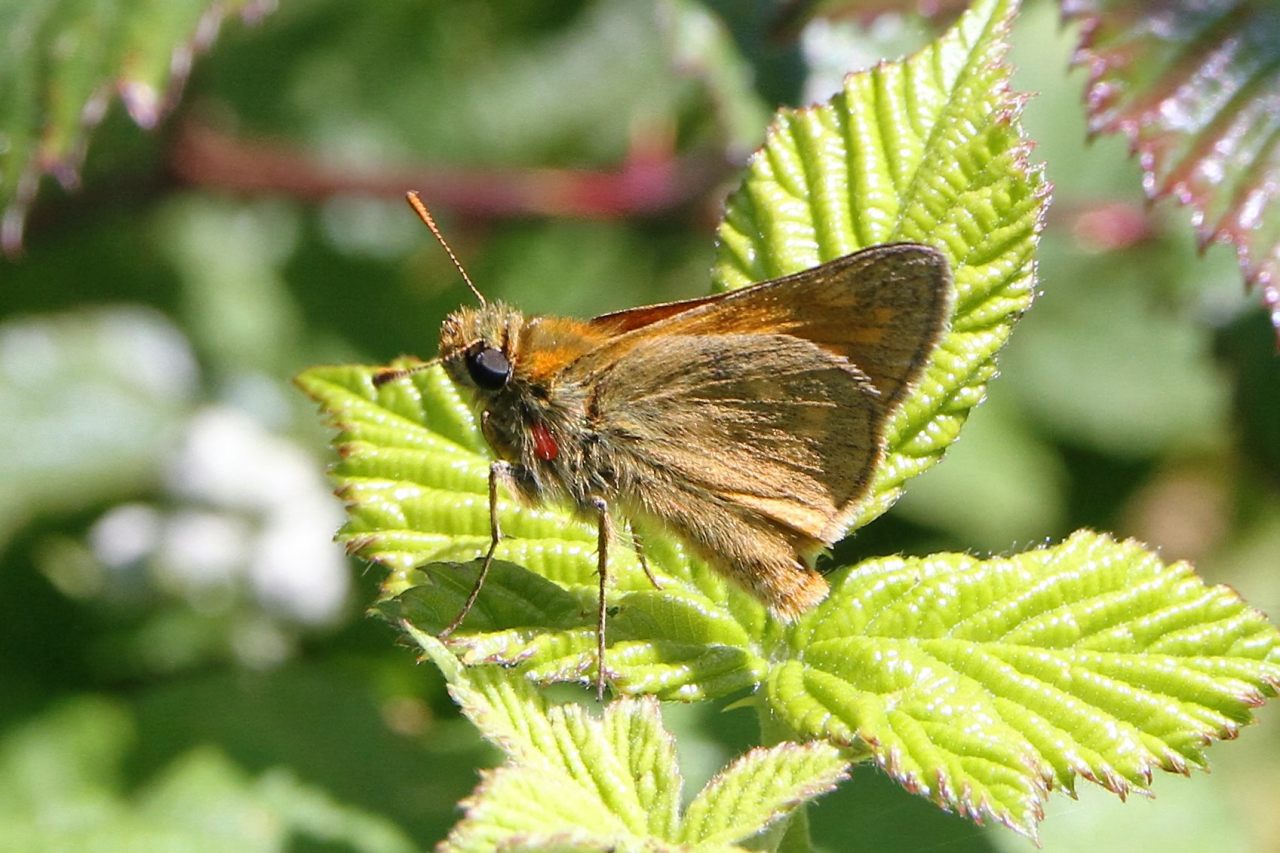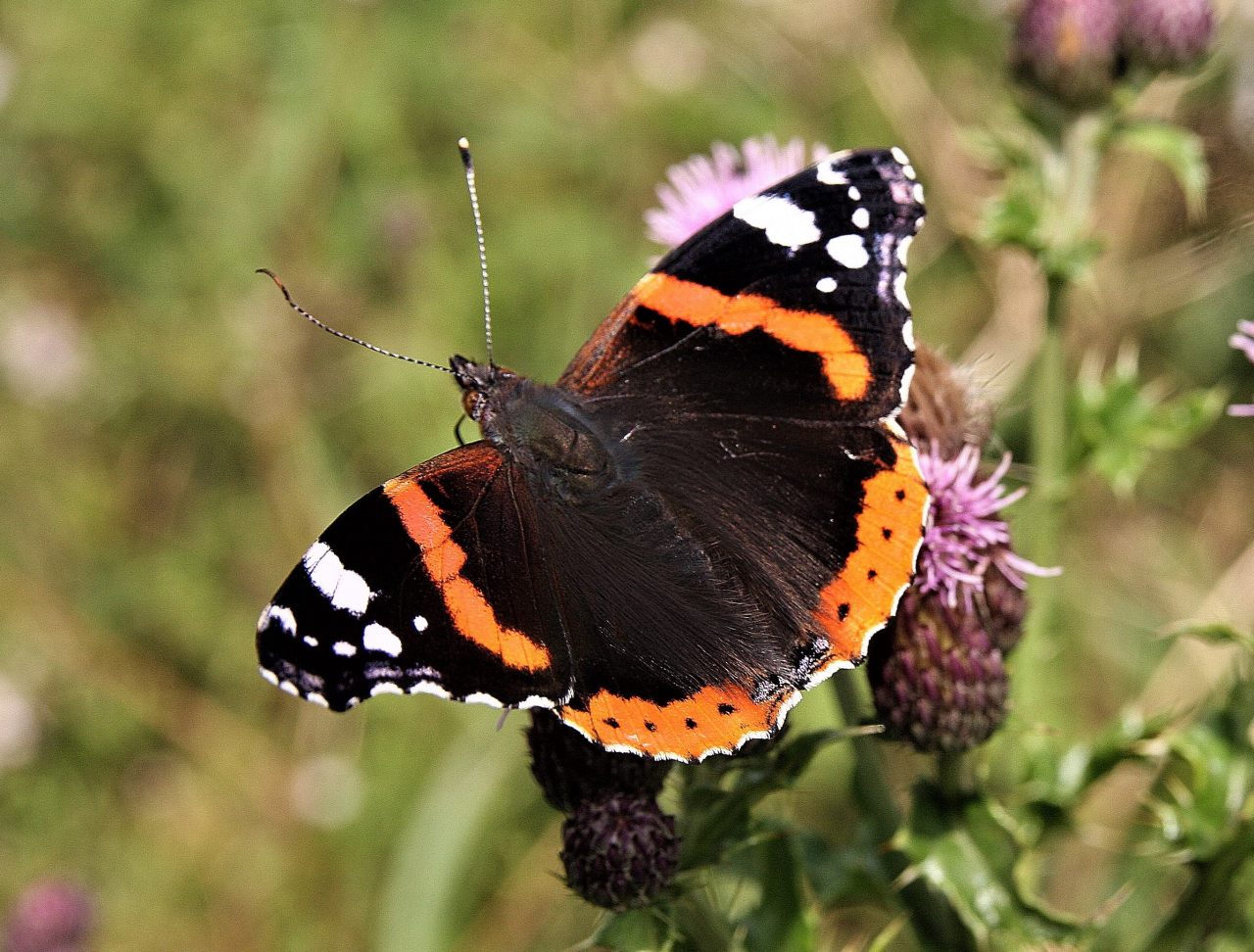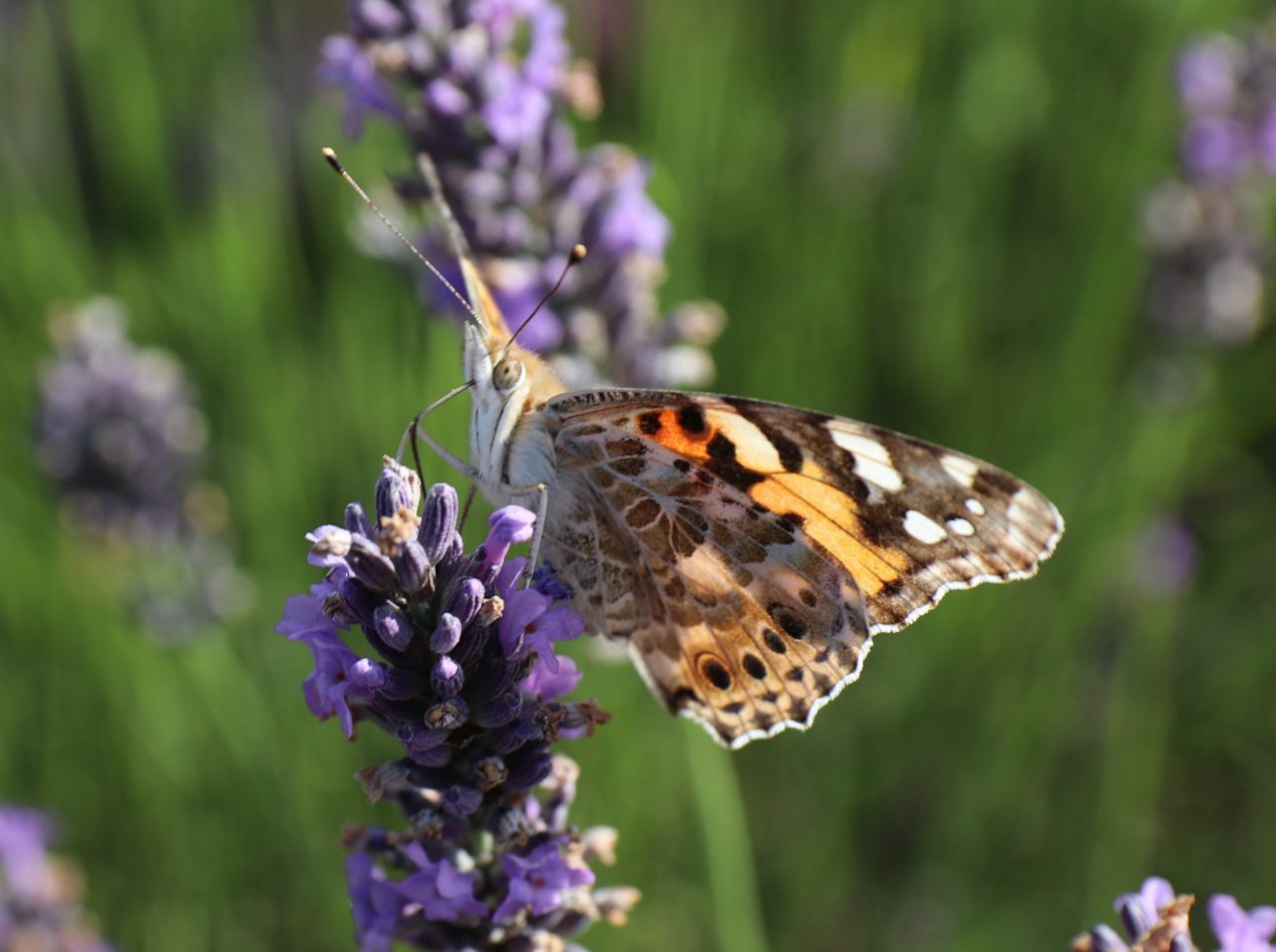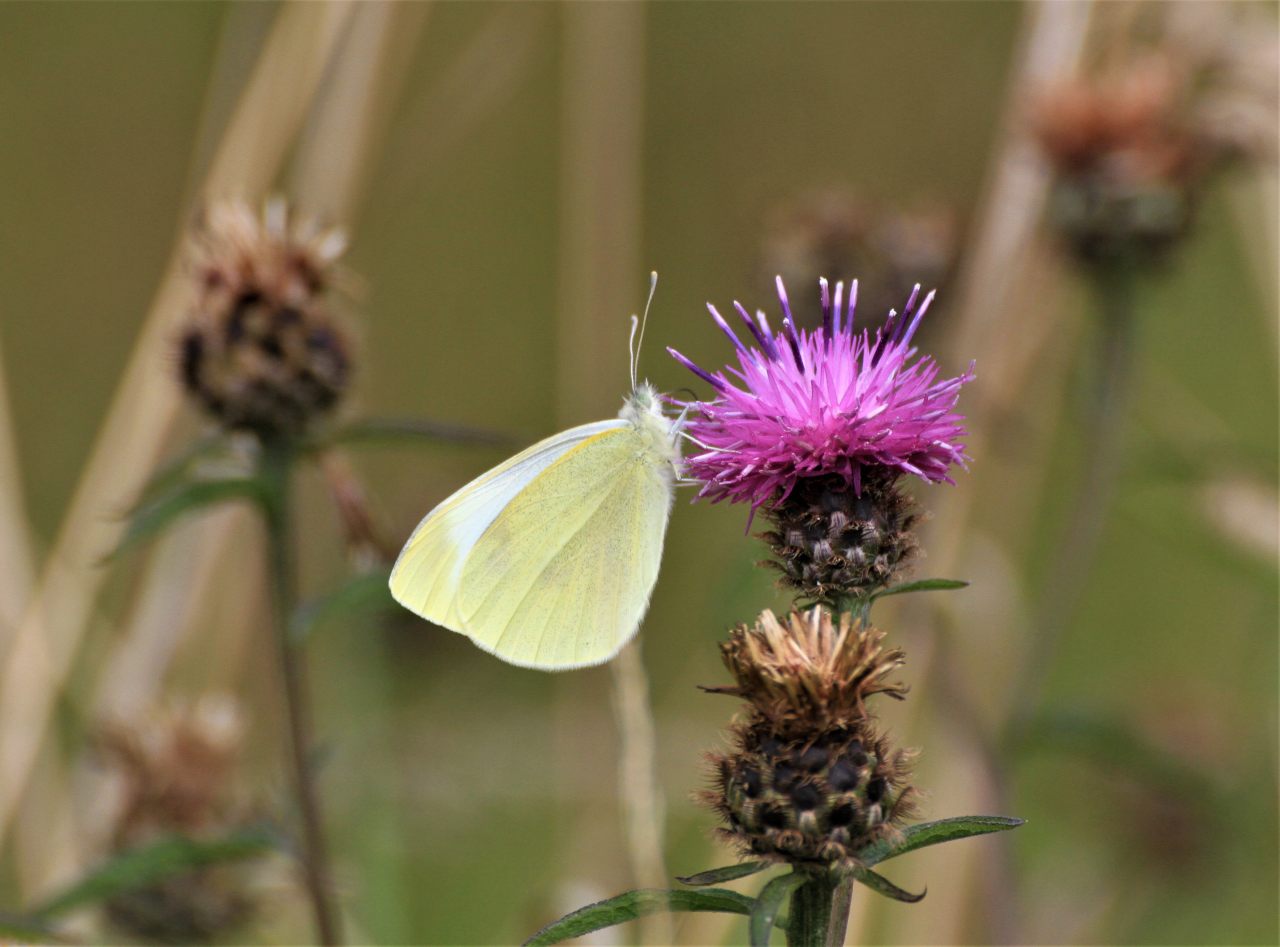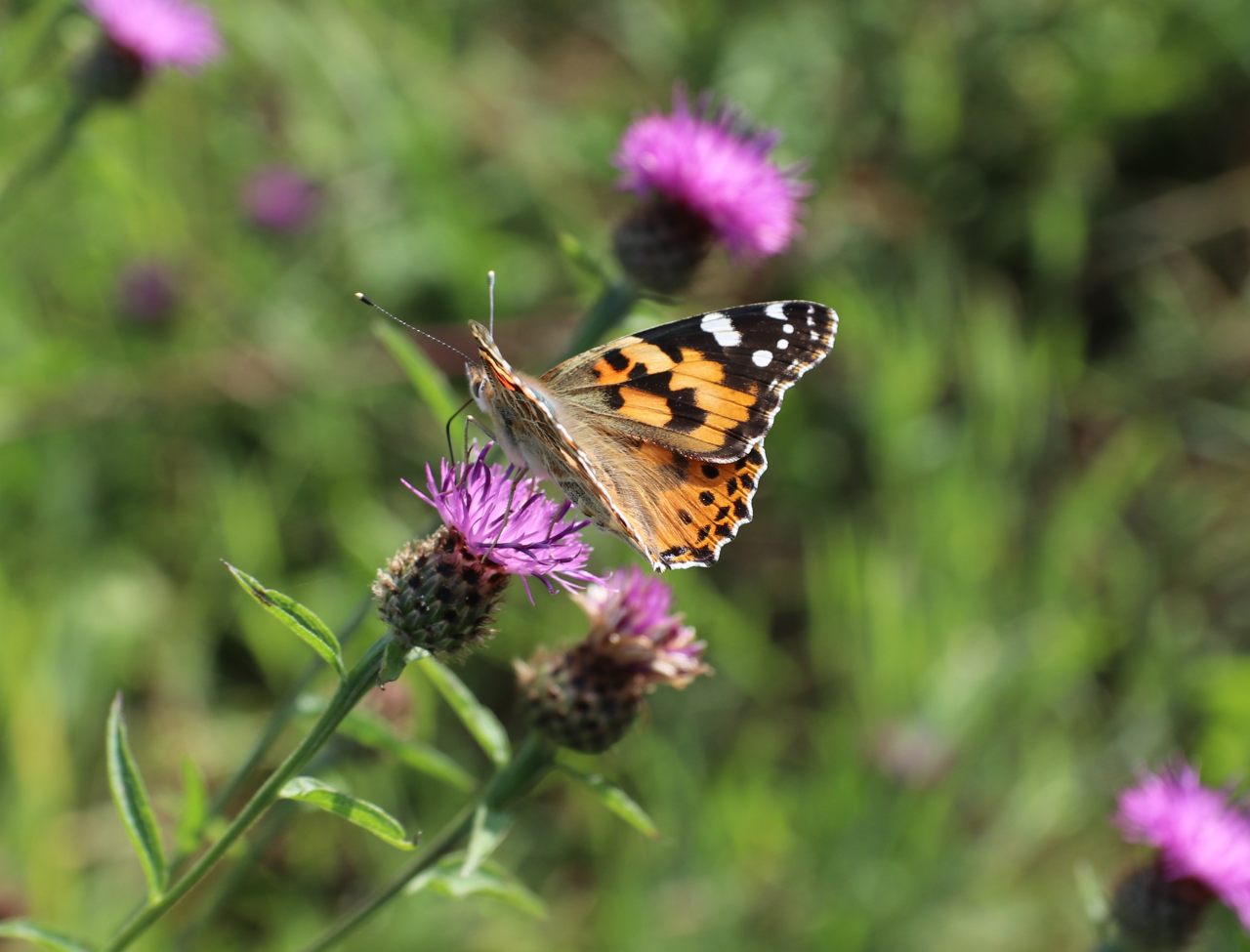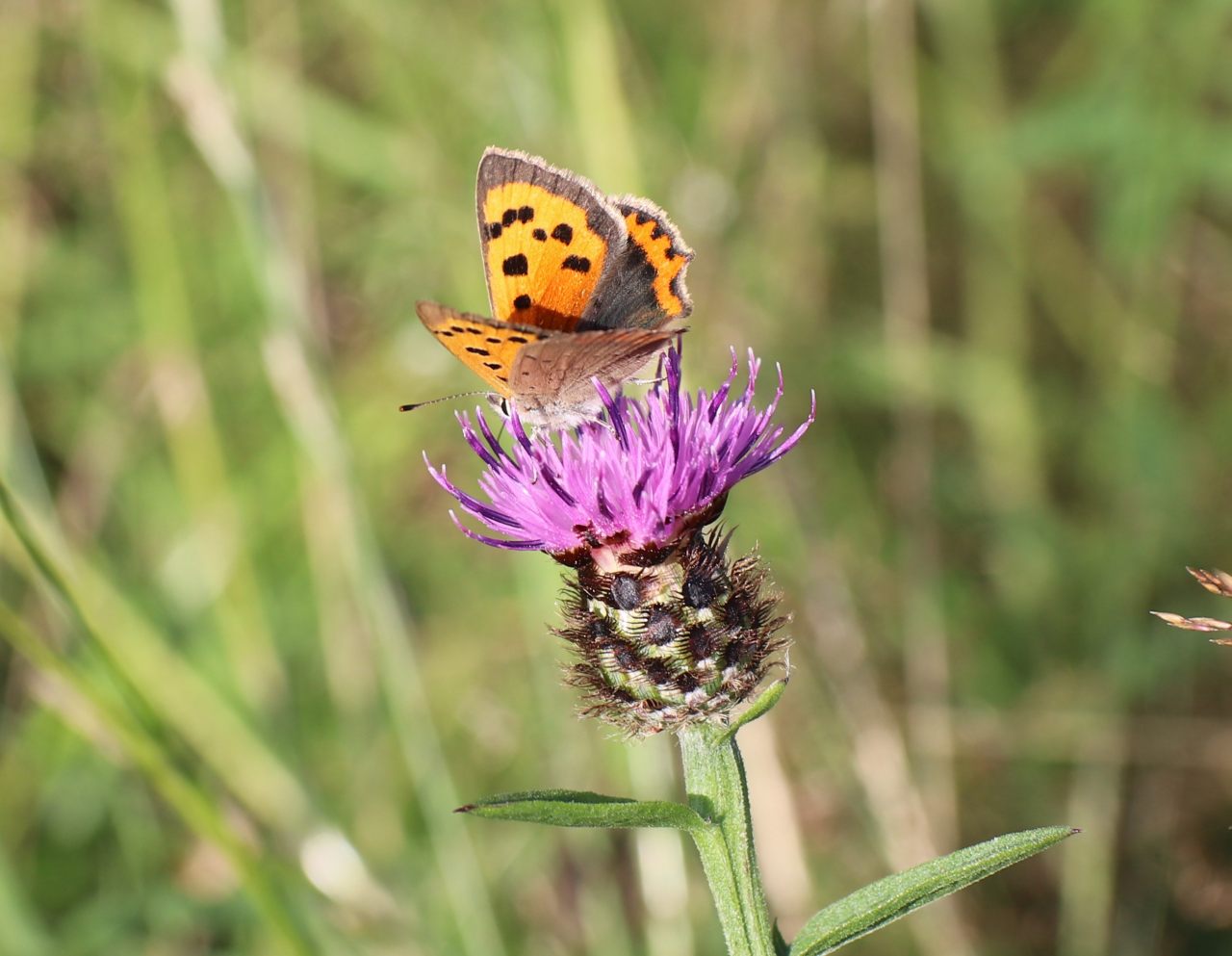

Anyone listening to the radio, or watching the television news can’t have failed to hear about the spectacular fall of painted lady butterflies this summer. I saw my first in the village in late May, and there have been regular sightings through June and July, but nothing like the 1st August when clouds of these delightful insects were found flying and feeding on the Legion Meadow at Little Heath. Beryl & I estimated that there were 50-60 of them on that magical day.
I won’t repeat the story I’ve dealt with several times recently, but just to say that these amazing creatures have come 5,000km from Morocco, sometimes breeding again in Spain or France before coming across the channel. The really hot weather that we experienced in July came via strong southerly winds from North Africa, and of course this benefited the painted ladies, so giving us an “eruption year”.
Other butterflies seem to have benefited too, including the clouded yellow butterfly and probably the red admiral, another migratory butterfly. A walk in the meadow also revealed a small copper, gatekeepers, meadow browns, comma, peacock, common and holly blues, small skipper, speckled wood, ringlet, small and green veined white, and a number of large white butterflies. Photographing these insects isn’t easy but I seem to have a developed a good technique for doing so, as you can see from the illustrations on this website. My favourite image however was taken at Summer Leys meadow near Northampton, when I managed to photograph a pair of brimstone’s displaying before mating. These large pale green (f) and bright yellow (m) are quite elusive and difficult to capture on film, but I got quite close on this occasion.
The Legion Meadow is developing all the time, and although still full of lots of grasses and tall green plants, wild flowers are beginning to show through. I will illustrate these next month, but they include; red clover, cranesbill, ox eye daisies, meadow sweet, purple vetch, forget me not, red dead nettle, yellow rattle, birds foot trefoil, cow parsley, buttercup, sorrel, dog rose, common spotted orchid, knapweed, celandine, lady smock and ragwort.
We are using a management regime suggested to us by the Cheshire Wildlife Trust and this is beginning to pay off, and we hope that the number of flowers appearing will continue to grow. I understand from gardening experts that it takes about 15 years for a meadow to produce its best display of wildflowers, but what is already exciting for us is the number of butterflies, various species of bees and insects that now visit the meadow. It is very encouraging to see these developments.
-

Meadow Brown
-

Common Blue
-

Small Tortoishell
-

Clouded-Lemon-Butterfly
-

Hollyblue
-

Speckled Wood
-

Green Veined White
-

Peacock
-

Ringlet
-

Mating Brimstones
-

Gatekeeper
-

Small Skipper
-

Red Admiral
-

Painted Lady
-

Small White
-

Comma
-

Painted Lady
-

Small Copper

